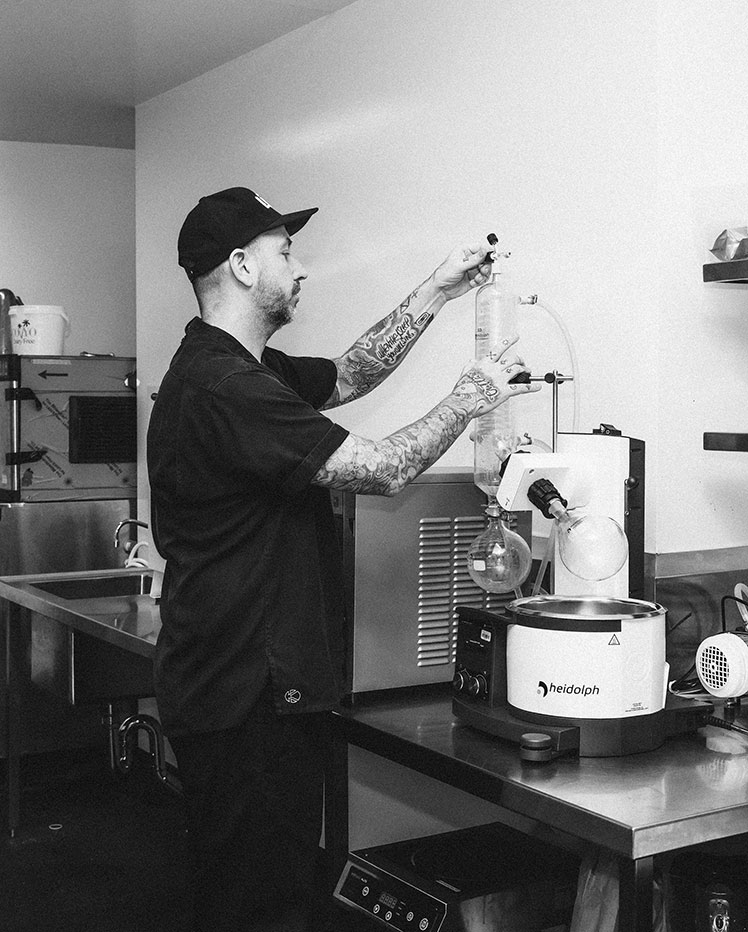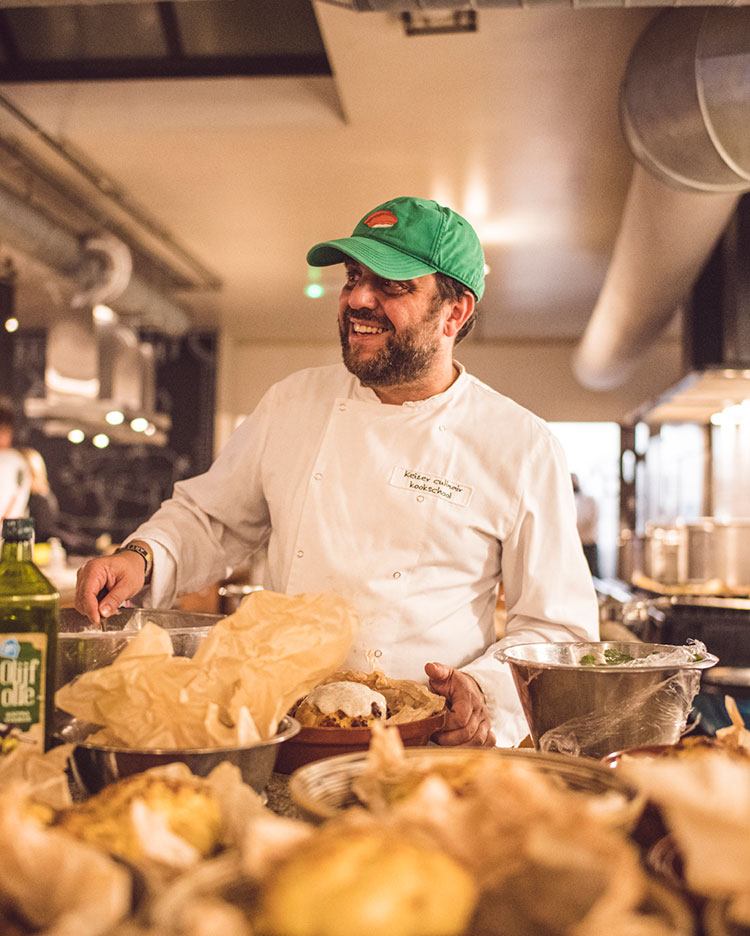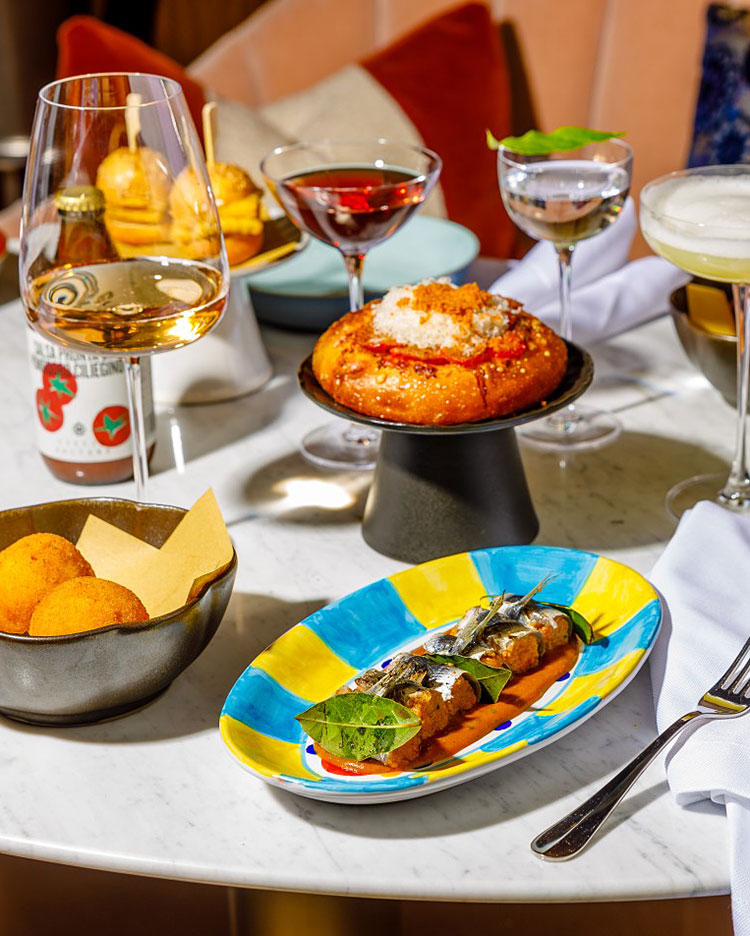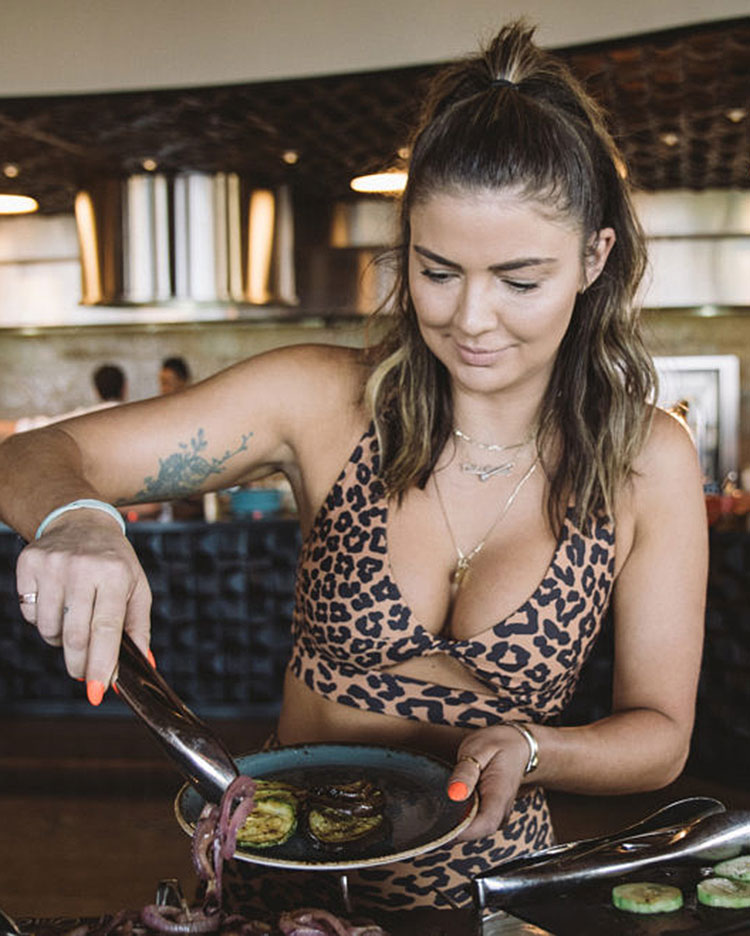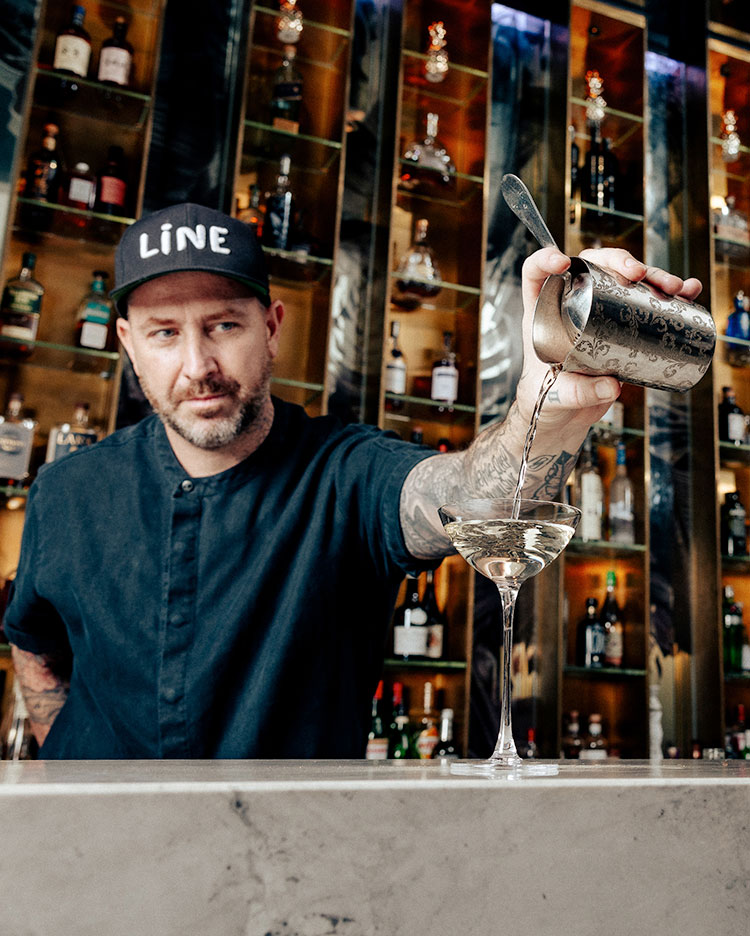
Matt Whiley Is Turning Food Waste Into Next-Level Cocktails
Matt Whiley Is Turning Food Waste Into Next-Level Cocktails
The celebrated British bartender has staked out an innovative corner of the cocktail world—most notably with a zero-waste menu at his Sydney bar, Re. He brings that ethos to W Brisbane for a Conscious Cocktails pop-up, where repurposed ingredients like burnt potato skin and onion ash verjus have a new life in the glass.
Where does the arc of a barman’s life lead? In the case of Matt Whiley—a native of Nottingham, England, who built his career at the forefront of London’s cocktail scene—it turns out to be Sydney at an hour when most nightlife professionals are rolling into bed. “I wake up super early, like 5 a.m.,” Whiley says in a sunlit video call, his miniature poodle snoozing in the corner of the frame. Nearly six years into his chapter as an expat in Australia, Whiley has eased into a wholesome morning routine: a dog walk on the beach, with an Americano in hand from his usual coffee shop. “They have a single origin that changes every day,” he says of the rotating beans. “I just like trying new things.”
With his Conscious Cocktails pop-up at W Brisbane, Whiley is putting that inclination toward novelty to serious work. The six-month program, which runs through November 30th, draws inspiration from Whiley’s most recent concept: a zero-waste bar, called Re, that opened in Sydney in 2021, where repurposed ingredients like cacao husk and seaweed spirit inject a little imagination into the sustainability conversation. As Re takes a pause to shift locations, this riverside sojourn at W Brisbane gives Whiley and Living Room bar manager Francesco Squllacioti a chance to experiment—and a site-specific batch of leftovers to transform, from carrot peels to pineapple rinds.
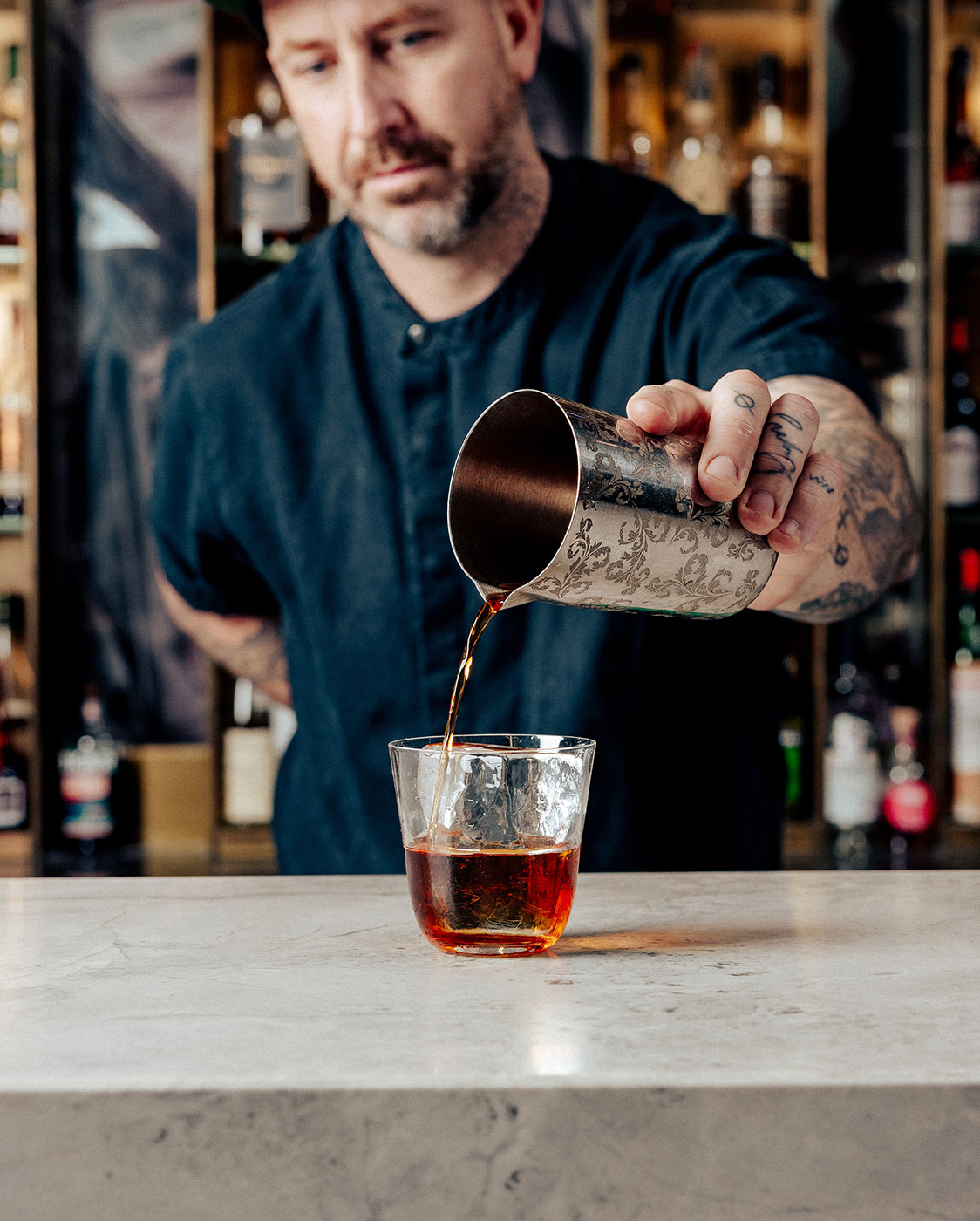

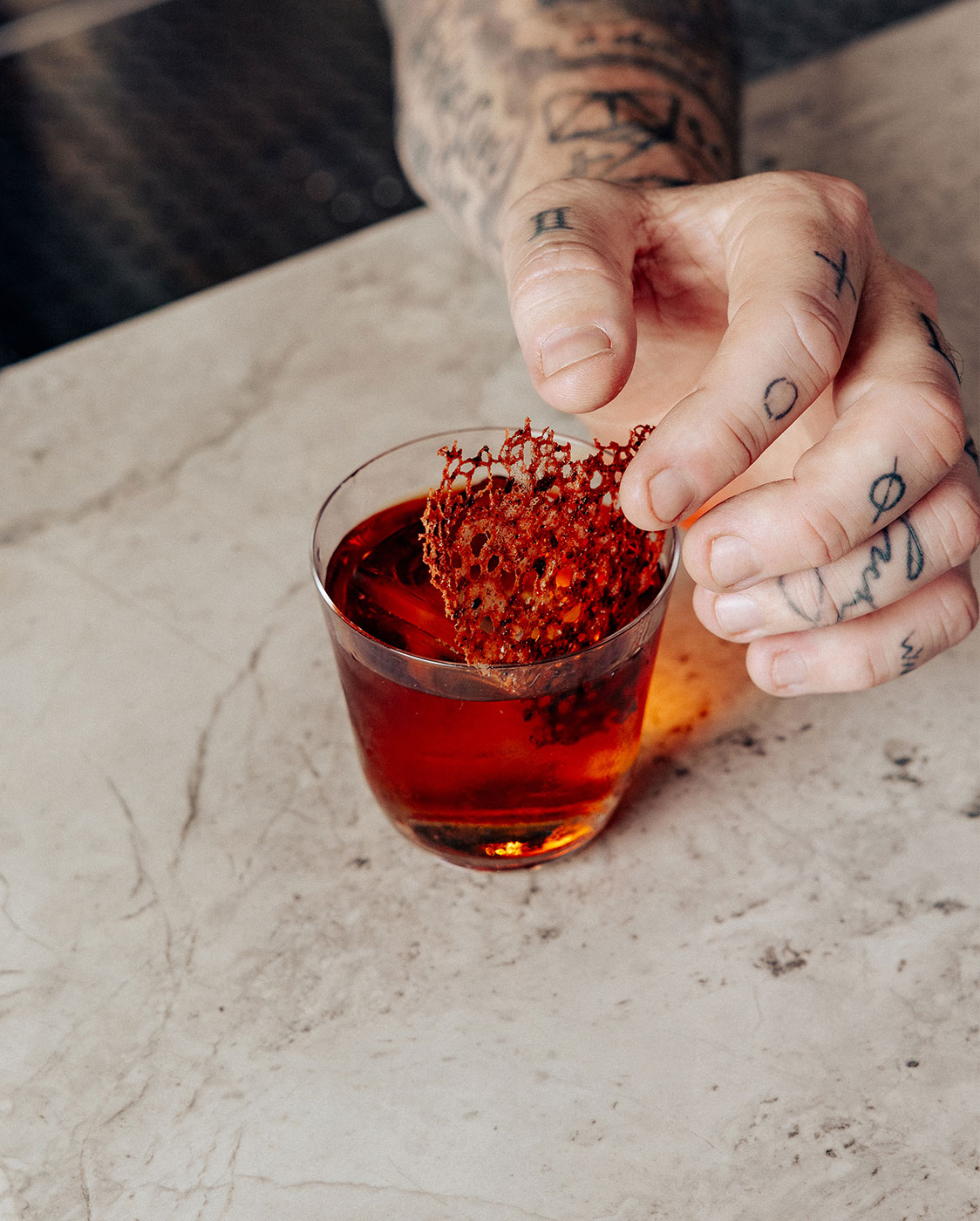

Whiley, who has continually tapped the cocktail zeitgeist with a lineup of acclaimed projects across both countries, understands the beauty of a hotel bar. Guests are already primed for a certain experience, he says—“which means you’ve got a target audience before you’ve even opened the door.” To some, a proposition like Conscious Cocktails requires a cheeky suspension of disbelief, as with the drinks Space Plant 60 (components include bread, fino sherry, roasted cauliflower cream) and Shroom Service (mushroom honey, onion ash verjus, shio koji). Others require simple restraint, as with the Re Tomato Gimlet: “I could literally drink liters of it, it’s so good,” says Whiley, who unpacks that recipe’s twists and turns in the conversation below. W Brisbane has already made strides on the sustainability front, with on-site composting and excess food donated to charity. But Whiley’s approach to minimizing industry waste, from kitchen trimmings to market overflow, combines muscular effort and creative finesse—easy enough for a guy who played professional cricket for years until age 24. Can a nightlife scene shed its raucous reputation and set a new tone for sustainability? “The cycle of life here is around work-life balance,” says Whiley, speaking of Australia’s pace. The same goes, existentially speaking, for the bar.
Was there a key moment in your career that shifted your focus toward sustainability and repurposed ingredients?
There were a couple things. I started working with a chef who was opening a restaurant called Fera in Claridge’s, and I consulted on the drinks there. I got to see a totally different aspect of what produce was and how it was integrated into a culinary scene—because before, working and owning bars in London, you just ordered produce and it was such a faceless thing. It was transactional. No one ever bought you produce for you to taste and eat before you [purchased] it. So this kind of opened my eyes. And then fast-forward a year later, I opened a venue inside another hotel, and there was a restaurant next door that was pushing for a star. So there was access to chefs and a different level of thinking about ingredients. That was when I came across class-two produce and food waste that was coming directly from the market.
Are there peers in the zero-waste space that you like to compare notes with?
I usually try to find solutions because I want to be able to learn intrinsically, myself. I like to learn from mistakes because sometimes you find happy accidents. But there are obviously various times when you need that expertise. One thing I’ve realized is if you ask for help, pretty much no one ever says no. Everyone that shares a common goal is all about sharing the information. Likewise, people are asking me questions. There’s a chef here called Josh Niland who works solely with fish, and he pretty much uses every part of the fish, all the time. It’s not about being sustainable—it’s opportunity. So I ask his advice on various different things, and we’ve come up with a few different ideas. I was using the roe from his Murray cod and distilling it to create a minerally sort of spirit. At the time he was making ice cream with the type of gelling agent from the eye of a fish. And then we started talking and I began using the fat from the Murray cod in a solid caramel. We tried to figure out solutions for a gallbladder of the Murray cod because he said he thought it tastes like Angostura bitters. But that was a stretch too far from me [laughs].
A few years ago, probably 2016, I used the chemical reaction between acetic acid and calcium to create carbon dioxide—we basically dissolved eggshells using vinegar—so I made an eggshell soda. Once we distilled the fish roe, basically the leftover exterior was also calcium, so [Josh and I] tried to [dissolve] that using the same process but that didn’t work. It is something that I’d like to revisit and try to master because there is a byproduct that’s wasted in the calcium.
Did you have a science background, or did you come to it by way of your interest in flavors?
I definitely came to science from my interest in finding solutions for things. I was actually a professional sportsman when I was younger. I played sport from out of school until I was 24, and then I kind of fell into bartending. I was just intrigued by how we can create new flavors. Now when I do consultancy jobs, if I don’t have all the equipment available I find it quite nice. There’s something therapeutic about doing things in a really simple manner that’s the opposite of the way that I operate in my daily life. But also it can be frustrating when you don’t have all the tools at your fingertips to make whatever you want.

Working with Francesco, was there anything that the W Brisbane team had to learn or invest in—whether techniques or equipment?
If anything, we were incredibly, incredibly lucky that the hotel purchased an insane amount of lab equipment when they opened five years ago and never actually used it. Francesco came into this [role] a few months after I’d agreed to do it. He had just moved from London, and we were talking about how maybe we’d have to simplify things because there might not be enough equipment there. And then he went rummaging around the hotel and found pretty much everything that we’ve already got [at Re]—and more. So it was a nice surprise that we got to use freeze dryers and stuff that we don’t have. It was more spending time with him and [figuring out] his knowledge of the equipment and my knowledge of the equipment and the two things coming together to make things taste as good as they possibly could.
In developing the Conscious Cocktails program, were there any signature ingredients carried over from Re, or new ones that emerged from the kitchen excess at W Brisbane?
There’s pretty much only one cocktail that utilizes ingredients that we’ve used in the bar before. Last year we made a margarita spritz highball, where we basically start with a mandarin and then repurpose it in six ways until it turns up as a powder on the side of the glass. They’ve come back into season and they taste really good, but also they’re abundant so we can get waste from the market. You actually understand that this tastes like a margarita, but it’s just lower ABV and light and fizzy. And Brisbane’s a warm climate, even through winter, so this refreshing highball makes sense in that setting. Pretty much everything else is then utilizing waste from the kitchens of the hotel. One of the most surprising combinations is a drink made with mushroom, onion ash, and pineapple. There’s another drink that uses cauliflower—it sounds really weird, but it’s super delicious.
If you were to show up at W Brisbane tonight, what would be your poison from that cocktail menu?
There’s a classic on the menu, which is a tomato gimlet. I could literally drink liters of it, it’s so good. That basically uses clarified tomato juice, and then we take cherry tomatoes and peel them and burn the skin to create a powder. After they’re peeled, we brine the tomatoes in light soy, dark soy, rice wine vinegar, and sugar, and they sit for a week. That becomes the garnish. But then we use some of that brine to go back into the clarified tomato. So it’s like vinegary, savory, salty gimlet with gin. It’s amazing.
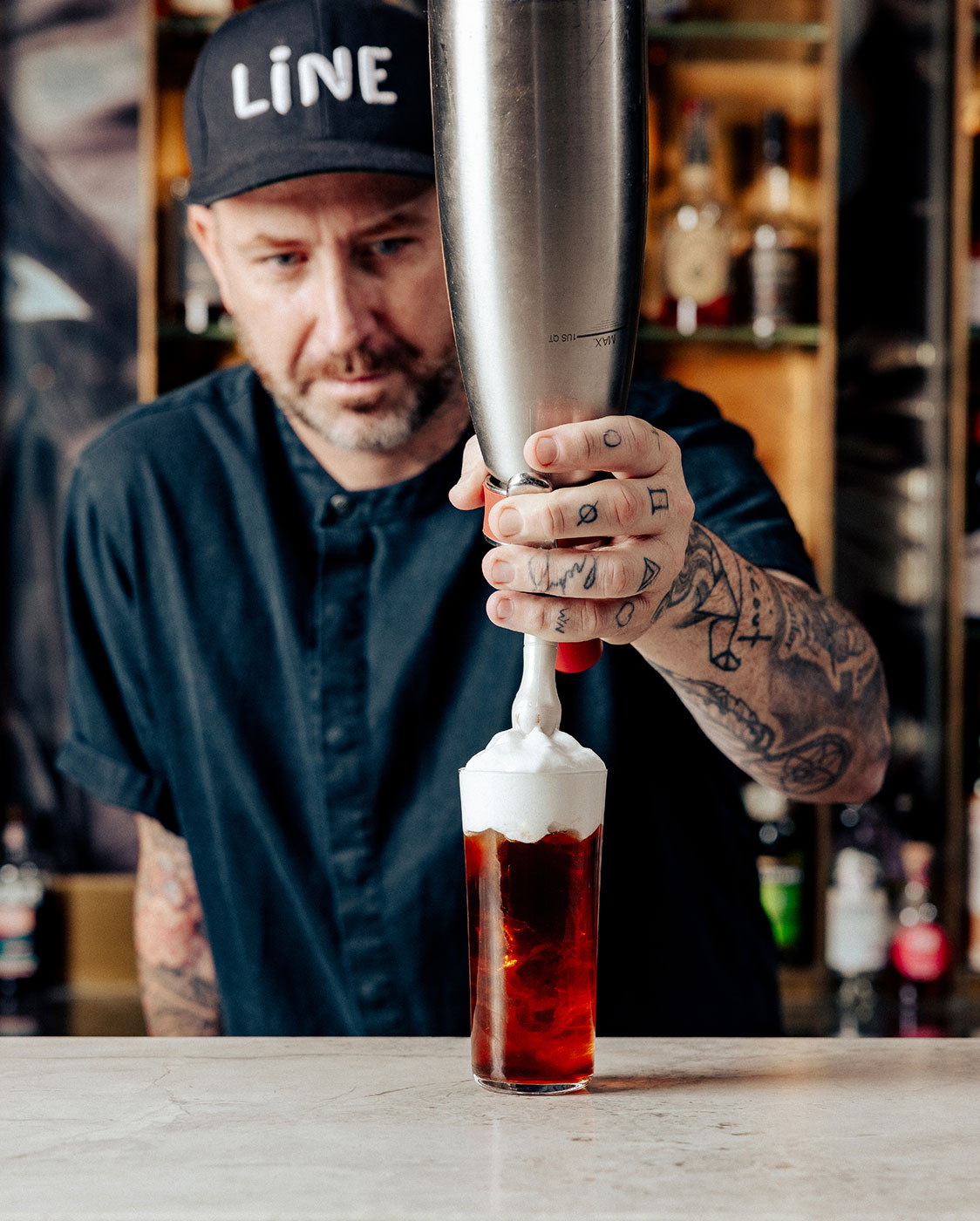



In what way is a cocktail an interesting way into the sustainability conversation? I feel like a lot of the subject is drier: packaging changes and plastic reduction.
From a beverage aspect, it’s [a matter of] seasonal fruit and vegetables that are just in oversupply. I’m not talking about the scraps off your plate. I’m talking about the tons of stuff that come from a market. They basically grow based off what they’ve sold the previous year. And if the climate changes or the market changes and there’s not the demand for the same produce, there will be an oversupply. We’re not looking for a piece of fruit or veg that looks perfect on a plate because we’re basically going to turn it into liquid anyway. I’m not saying that everyone needs to go to the full extent of what I’m going to, but it actually blows my mind that every bar in the world is not buying cheaper produce.
Where in the world would you want to take this Conscious Cocktails experience next?
If we’re embraced in Brisbane, I don’t see why it couldn’t be something that is in every W around the world. I was actually talking to some of the guys in Brisbane: With a few minor tweaks, there’s no reason why they couldn’t eliminate food waste in the hotel—all food waste. They’ve bought me in to showcase what can be done and to show that this kind of thing can be luxury, but for me, it doesn’t need to be something that’s spoken about all the time. It could just be something that happens daily. In five years’ time, I believe that this will be everywhere and it won’t be something that’s on the menu as “conscious cocktails.” It’ll just be like signature drinks because this is the better way to operate. The circular economy is actually pretty simple.
